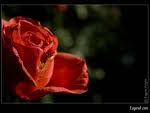Same as last week lesson but this week, we were asked to do the task individually.
Here I picked subject Science and the name of the experiment is Teeth and Eating. This activity is for kids of age 7 and 8.
1) Please go to this website:
http://www.bbc.co.uk/schools/ks2bitesize/science/living_things/teeth_eating/play.shtml
This experiment is about the 3 different types of animal diet; Omnivore, Herbivore and Carnivore. This experiment will show the differences between them especially their teeth and their foods.

2) Students will be ask to drag each set of teeth to the right mouth. Then click "Eat" button.
If students get wrong answer, this images will appear and click "Reset" button to try again.


If students get right answer, this images will appear.


3)From this experiment, students may know the differences between Omnivore, Carnivore and Herbivore.
Concept Map

Questions:
1. Must Do:
List 2 examples of Omnivore, Herbivore and Carnivore.
2. Should Do:
What are the differences between Herbivore's teeth and Carnivore's teeth?
3. Must Do:
Can you find out how Omnivore's, Herbivore's and Carnivore's teeth are adapted for the different foods they eat.


